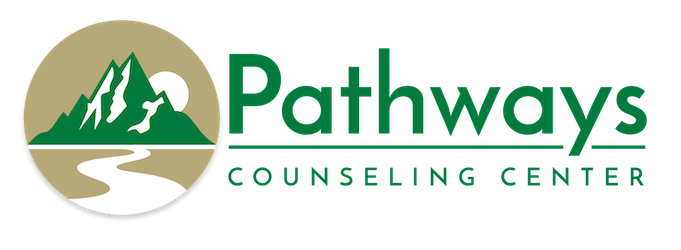Mental Health Services in the Spring Hill Area
We offer a variety of mental health services within the state of Florida for individuals, families, and couples via in-person appointments or telehealth. Learn more below.
Individual Therapy
We work with individuals, one-to-one, to move through your unique situation. Individual therapy is a type of talk therapy where a single person works through personal issues alone with her therapist.
Depression
According to the National Institute of Mental Health, Major depression is one of the most common mental disorders in the United States.
For some individuals, major depression can result in severe impairments that interfere with or limit one’s ability to carry out major life activities. In a study in 2017, it was found an estimated 17.3 million adults in the United States had at least one major depressive episode. This number represented 7.1% of all U.S. adults.
Depressive symptoms are listed in the DSM5 but common symptoms are, inability to concentrate, inability to sleep or sleeping too much, loss of interest in activities that one generally enjoys, isolation from friends and family, loss of appetite or emotional eating, low energy, and low self-worth. An individual does not need to display all of these symptoms to be diagnosed with depression.
Anxiety
Anxiety is often a co-morbid diagnoses that is found with depressive symptoms and diagnosis.
According to the DSM5, there are several types of anxiety, separation anxiety, social anxiety, specific phobia, generalized anxiety disorder, agoraphobia and panic disorder.
The main symptoms of anxiety disorders are excessive fear or worry, difficulty sleeping, breathing, staying still, concentration, panic and uneasiness. Occasional anxiety is an expected part of life.
You might feel anxious when faced with a problem at work, before taking a test, or before making an important decision. But anxiety disorders involve more than temporary worry or fear. For a person with an anxiety disorder, the anxiety does not go away and can get worse over time. The symptoms can interfere with daily activities such as job performance, school work, and relationships.
Substance Abuse
Substance use includes a wide variety of symptoms and substances. It wreaks havoc in people’s work, social relations, family, school, and quality of life. This generally not only affects the person who is the abuser but also affects at least seven persons who are close to the individual.
Previously called Substance abuse, the term is now substance use disorder. Substance use disorder is a disease that affects a person’s brain and behavior and leads to an inability to control the use of a legal or illegal drug or prescription medications. Substances such as alcohol, marijuana, and nicotine also are considered drugs that are often abused.
Criteria in the DSM5 for this disorder:
- Cravings to use the substance.
- Wanting to cut down or stop but not managing to.
- Taking the substance in larger amounts or for longer than you meant. 4. Neglecting other parts of your life because of substance use. 5. Continuing to use even when it causes problems in relationships. 6. Using substances even when it puts you in danger.
Adjustment Disorders
The development of emotional or behavioral symptoms in response to an identifiable stressor(s) occurring within 3 months of the onset of the stressor(s).
These symptoms or behaviors are clinically significant, as evidenced by one or both of the following:
- Marked distress that is out of proportion to the severity or intensity of the stressor, taking into account the external context and the cultural factors that might influence symptom severity and presentation.
- Significant impairment in social, occupational, or other important areas of functioning.
- Do not occur along with an additional mental health diagnosis and does not appear as normal bereavement.
Adjustment disorders are the most common diagnosis for most clients who come into our office. They often also show symptoms of depression, anxiety, and conduct disorders. They are usually short term disorders that can be resolved in less than three months.
Crisis Intervention
Eating Disorders
Family Therapy
We at Pathways see many couples and families as we like to work with the whole family when someone is displaying symptoms of family discourse or varying levels of dysfunction. We work with individuals, children, couples, and all types of family systems.
Abuse
ADHD
Addictions
Both psychodynamics and interventions.
Adult Children of Dysfunctional Families
Grief & Loss Counseling
Parenting
Autism Spectrum Disorders
(Previously PDD, Aspergers, and Autism)
Couples Therapy
The issues vary greatly with the situation the family/couple is presenting and are evaluated and processed using varying types of psychotherapy depending on what the family/couple needs.
Codependency
Communication Techniques
Divorce Adjustment
Relationship Healing
Phase of Life Issues
Self-Esteem Support
How Do I Know if Therapy is Right for Me?
If you’re wondering about whether or not mental health therapy is right for you, chances are good that it is. At some point in our lives, we all deal with mental health challenges. Whether it’s grief over the loss of a loved one or challenging relationship dynamics (or something else), support from a counselor can help us in a variety of ways. To explore whether or not therapy is a good choice for you right now, call our offices by clicking below.
What We Offer
At Pathways Counseling Center, we offer the following types of mental health services:
- Counseling
- Psychotherapy
- Consulting
- Personal Coaching
- Workshops
- Speaking
Who We Serve
We work with individuals and groups from all walks of life, social groups, and personal situations. Our counselors have experience with:
- Individuals
- Couples
- Families
- Groups (Personal and Business)
- Children, ages 3 and up.
Where We Speak
Our founder, Nancy Makar, is available to speak at churches, businesses, clubs, and service organizations within the greater Tampa Bay Area.
